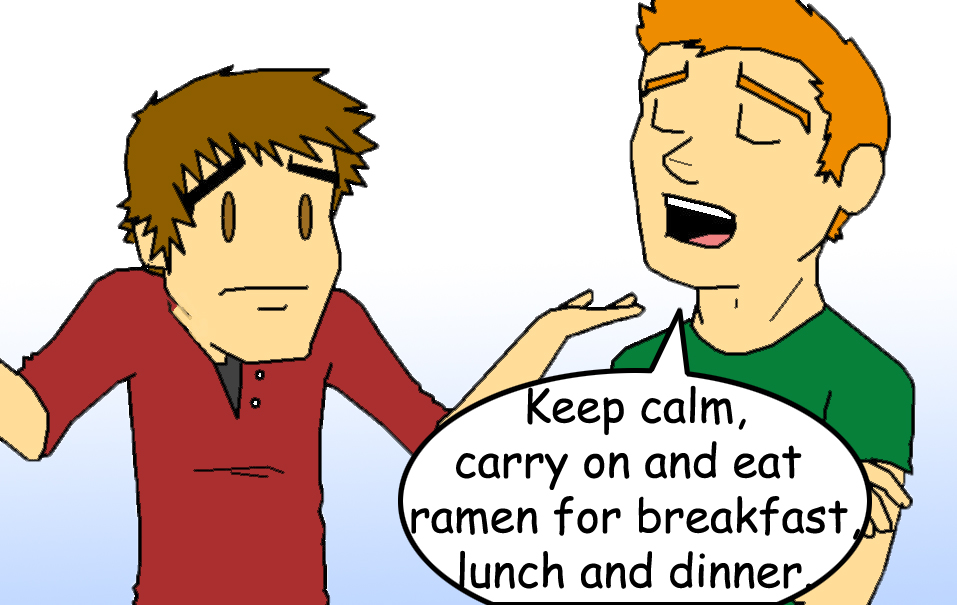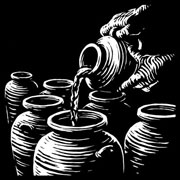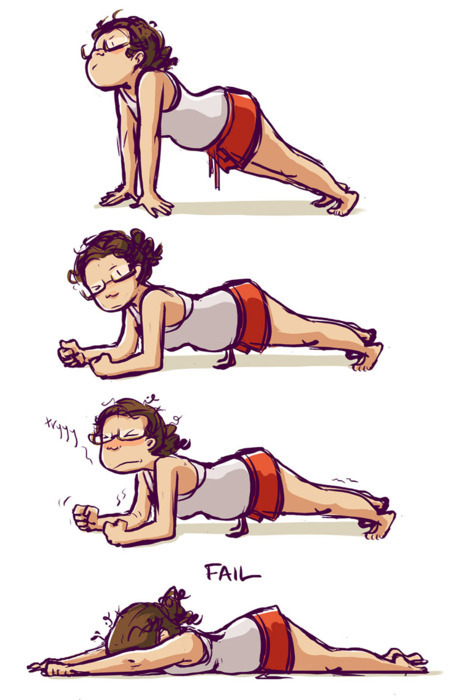Changed
Anyone who interacts with seniors in college at this time of year can attest to the emotional roller coaster that defines their raison d’être from January through May. The fear factor becomes an unwelcome interloper. Texts of terror crowd smart phone airways as students send messages of trepidation, dread, panic, apprehension, anxiety and angst to one another as parents, interested friends and relatives, teachers and administrators ask the inevitable question, “So you’re graduating! What are you going to do?” 
The unknown future can be really exhilarating for a few Type A’s who began to plan their post- college careers the day that they step foot onto their college campus. Some fortunate undergraduates may secure positions in their choice of work settings or post-graduate internships. Some decide to take a gap year and travel, do volunteer service domestically or abroad, while others decide to continue in a post-baccalaureate degree program and pursue graduate study. However, in my experience as a parent of three children in their twenties and a retired college campus minister at three different institutions of higher education, the general feeling of second semester seniors can be best described as bamboozled. The time of commencement day reckoning catches many of them completely off guard and leaves them feeling unprepared, uncertain and afraid of the future. What should be a time of elation too often turns into a period of desolation for many students. Some of the dialogue between students, parents, teachers and administrators goes something like this:
Student: “I’ve applied everywhere. Suppose nothing turns up? I’m so worried that I can’t concentrate on anything and I can’t sleep.”
Administrator: “Stay focused on the second semester, do your best work and keep applying everywhere. The road will open; you have to be patient and try not to worry.”
 Student: “I have to move home for awhile. I can’t afford to live on my own. I need to find work and I need to save money before I can move out again. I like my family but I’m used to being on my own. It’s pretty depressing.”
Student: “I have to move home for awhile. I can’t afford to live on my own. I need to find work and I need to save money before I can move out again. I like my family but I’m used to being on my own. It’s pretty depressing.”
Friend: “I know. Nobody warns you about this. The end of school comes too fast. I’m not ready for the real world.”
Student: “I’m used to walking across the courtyard and visiting with friends at 2:30 in the morning. I can’t even believe that I won’t be able to do that anymore.”
Parent: “The party’s over. Things will work out. In the meantime, we expect you to be home at a reasonable hour so we can sleep. Expect a curfew after you move home again. And by the way, how many applications have you sent out this week?”
Student: “I thought high school went by quickly; that was nothing compared to college. It can’t be time to graduate; I need more time to learn, to study, to prepare.”
Professor: “The work teaches you what you need to know. We’re never done learning but eventually you have to take what you know out for a spin and see what you can do with all you’ve learned and what you will continue to learn. This is only the beginning of change; it occurs often throughout life.”
I thought about all of this as I listened to the gospel of the wedding feast at Cana this morning. I imagined Jesus as a senior in his final semester of college. He and his friends join other friends and relatives, including Jesus’ mother for a party, a wedding celebration. Jesus’ public ministry has not begun; he’s still in his internship year and preparing to graduate but he’s not quite ready.
At the party, the wine runs out. His mother worries that their friend the host will be embarrassed. “They have no more wine,” she tells Jesus. Like any good parent that knows their child even better than they sometimes know themselves, his mother believes in her son. She believes in her heart that her son can save the day. She feels compassion that the party may end poorly because at its peak, the jugs run dry. The guests may consider that a rudeness; the reputation of the hosts could be ruined on the very day they wish to offer their invited guests their best hospitality. Without saying so, this gospel sites the mother of Jesus as a really compassionate woman who understood the plight of the hosts and intervenes to her son on their behalf.
 “What’s this got to do with me?” Jesus asks his mother. He addresses her politely but disputes her timing. He protests. Mom, I’m not ready to go to work. If I do what you suggest, this news will spread like wildfire in this small village and I’ll be forced to go public before I feel prepared. Do you really expect me to go center stage before I feel ready? This is not a major crisis; we’re talking about empty wine jugs, not world peace. What does this have to do with you and me?
“What’s this got to do with me?” Jesus asks his mother. He addresses her politely but disputes her timing. He protests. Mom, I’m not ready to go to work. If I do what you suggest, this news will spread like wildfire in this small village and I’ll be forced to go public before I feel prepared. Do you really expect me to go center stage before I feel ready? This is not a major crisis; we’re talking about empty wine jugs, not world peace. What does this have to do with you and me?
The mother of Jesus never answers his question. The unspoken word between a parent and child can speak more clearly that any argument, opinion or viewpoint. Something needs to be done and you can help. You’ve had enough time to prepare; it’s commencement day. Go to work. God will provide what you need as you go along. Trust in God, believe in your own God-given gifts and share them with the people who need them as they present themselves, one at a time. Right now, there’s host with a bunch of empty wine jugs at a wedding. We need you to step up to the plate. I know that you’re afraid and that you don’t feel ready. I believe in you.
“Do whatever he tells you.” With those words, Mary catapults her son from his period of preparation period into action. His internship period end; the work begins in earnest. Jesus ‘orders’ the waiters to fill the jars with water. Any student training within the hospitality industry will understand that while the waiters follow his directive, they probably wonder about the sanity of his order. The head waiter tastes what Jesus produces and calls the groom over and tells him that hosts usually serve the good wine first. However, in this case, the host saves the best vintage for the end of the party. God only serves us the very best.
 I confess that I woke up today in a terrible mood. Chronic pain and long term disability can sometimes lead you into a very dark place. Let’s face it: we all have those days, disabled or not. Today, I wallowed in a self-imposed pity party. My husband serves as the pastoral musician for our parish, work that I can longer consistently do because of the amount of sitting it requires on a bench at multiple liturgies. I miss it, I really do. I know that I am always welcome to join Patrick in our parish and embellish his organ accompaniments by adding instrumentation that enhances the music for the parish community. We’ve always worked well together and I usually welcome those opportunities but today I decided to be a stubborn brat and told him that I would find another place to worship. Disgusted with my immaturity, I prayed. “Do whatever you want with this dreadful mood. I give it to you because I don’t know what else to do with it.”
I confess that I woke up today in a terrible mood. Chronic pain and long term disability can sometimes lead you into a very dark place. Let’s face it: we all have those days, disabled or not. Today, I wallowed in a self-imposed pity party. My husband serves as the pastoral musician for our parish, work that I can longer consistently do because of the amount of sitting it requires on a bench at multiple liturgies. I miss it, I really do. I know that I am always welcome to join Patrick in our parish and embellish his organ accompaniments by adding instrumentation that enhances the music for the parish community. We’ve always worked well together and I usually welcome those opportunities but today I decided to be a stubborn brat and told him that I would find another place to worship. Disgusted with my immaturity, I prayed. “Do whatever you want with this dreadful mood. I give it to you because I don’t know what else to do with it.”
En route to my alternative worship destination, I suddenly turned the car around and found myself pulling into the parking lot of our parish one minute before Mass began. I can’t even tell you why I turned the car around; I just did. When I reached the church stairs, I ran up to the choir loft. Pat smiled. “Changed your mind?” he said and handed me a copy of the gathering song just before the procession began.
Because his cantor called in sick, Pat planned to lead song for two Masses, accompanying the assembly and singing the psalm from the loft. “Why don’t you lead the psalm from the ambo and I’ll play for you?” I suggested. I ended up playing for both Masses with my husband. We went for coffee in between liturgies. In the choir loft I could safely stretch, walk, squat and plank to stay limber and pain-free in between ministering music without disturbing public prayer. After the first Mass, a former student came up to the loft to say hello. Now a well-respected administrator in higher education, I was reminded that not so long ago, he was one of the seniors who wasn’t sure which direction he was headed after college. To see him happy and successful felt like the sun on my heart.
 After church, I went to the gym. Workouts always boost my endorphin levels and my spirits and bust my chronic pain into smithereens. I picked up my dad from the nursing facility so that he could enjoy an afternoon with us watching football and enjoying a homemade dinner on a day as warm as spring. When we stopped for gas, a dear friend saw us and ran over to give him a hug. I made dinner for my family, wrote this column and will end my day feeling as though the day was worth living. God broke into my day and changed my water into wine.
After church, I went to the gym. Workouts always boost my endorphin levels and my spirits and bust my chronic pain into smithereens. I picked up my dad from the nursing facility so that he could enjoy an afternoon with us watching football and enjoying a homemade dinner on a day as warm as spring. When we stopped for gas, a dear friend saw us and ran over to give him a hug. I made dinner for my family, wrote this column and will end my day feeling as though the day was worth living. God broke into my day and changed my water into wine.
When we give Jesus an opportunity, he changes things. Anxiety becomes anticipation. Dread becomes delight. Panic turns to proactive calm. Paralyzing fear becomes hopeful determination. That’s not magic: that’s a miracle – change that comes when and where it’s needed at the moment we need it to occur. Even Jesus felt unprepared and hesitant to take a step into his future. He needed a nudge from his mother who was prompted out of her compassion for the mortified host to ask her son to change the situation. And he did, through the grace of God because she asked him to. We might want to consider that God will do the same for us, whoever we are, however young or old we are, wherever life finds us in any circumstance. It’s not magic; it’s a miracle – change for the good and made possible through the grace of God.
For a deeper exegesis on this gospel, click http://ncronline.org/node/42096
 Denise Morency Gannon
Denise Morency Gannon
Reader Comments (1)
Denise,
I loved this reflection...especially the " God broke into my day and turned my water into wine!!!" Wish I had read that before Friday when I was preparing for a reflection for a Faith Formation Class for today.
You are gifted....thanks for being "AWAKE" to the gift.
Marianna